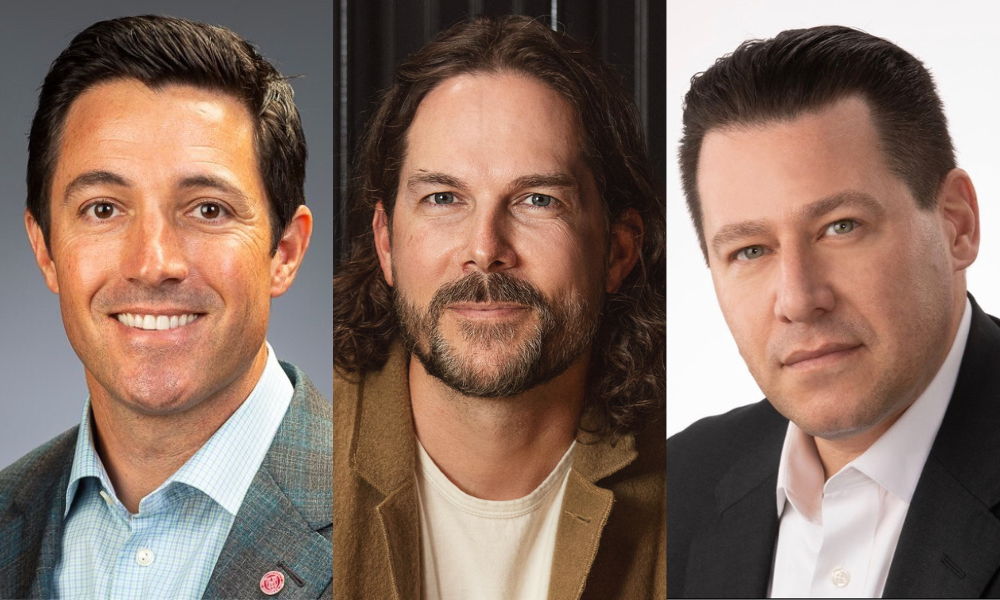

This past summer, it was anticipated fintech firm Robinhood, an online discount brokerage with commission-free trading, would try to enter the wealth management space.
That came to pass on Tuesday as the firm announced their acquisition of Florida-based custodial platform TradePMR in a $300 million deal, with a focus on creating a referral network, connecting their 24 million funded accounts to RIAs.
Industry leaders said they are ecstatic about the deal. Although it’ll take several years for it to have a significant impact on the industry, Brett Bernstein, CEO and co-founder of XML Financial Group said the deal is “an excellent strategic move.”
“While I do not believe it’s a transformative deal for our industry, I think their rationale for a multi-generational platform makes total sense,” he said in an email. “Being able to marry an online platform that is expanding their current offering with enhanced services like a credit card and futures and indexed options with financial advisors, to me, makes a lot of sense.”
He cautioned advisors to utilize the tools they may have at their disposal to engage multi-generational families.
“For custodians or advisors who do not have access to tools like this, I believe this deal should put them on notice to think about their practice and how they may want to make changes moving forward,” he added.
John O'Connell, founder and CEO of The Oasis Group, said the deal will be a huge benefit to all involved.
“Robinhood builds a path into the wealth management industry for their clients who want to move beyond self-directed trading accounts while TradePMR gets access to a huge opportunity to gain new clients to their platform,” he said.
“TradePMR advisors will get a very healthy referral pipeline that rivals the Schwab referral program.”
Advisory firms who want to build their business through a referral network, O’Connell noted, will need to “strongly evaluate TradePMR as a custodian option.”
Others said the acquisition will provide an opportunity for the next-generation advisor community, as Robinhood has a little bit of “gravitas" with the demographic.
“For advisors, their end clients are also aging, so this could give an opportunity for certain advisors to be able to get access to a younger demographic of clients,” said Mike Watson, head of RIA Custody at Axos Advisor Services.
Watson also suggested that the "fully digitized" service Robinhood may offer could be a good fit for emerging RIAs that are looking for a more technology-driven custodial option, similar to Altruist.
Jason Wenk, CEO of Altruist, said it will “make things better” for RIAs.
“They’ll have better technology, lower prices and more automation. It’ll be really good, but it’ll just take longer than people might expect,” he said. “They'll push us to be better.”
Robinhood was one of the reasons why other fintech companies, like Schwab and Fidelity, went commission free, Wenk said, which caused them to react “once there was enough scale and impact.”
“This will happen here too,” he said.
He said Robinhood also faces a significant technical and regulatory challenge in integrating TradePMR's operations, noting that the economics simply don't support Robinhood's technology-first approach.
“Robinhood is a full self clearing custodian. There’s zero percent likelihood they stay on Wells Fargo,” he said.
That’s why he predicts it will take the firm five to 10 years to fully rebuild TradePMR's platform from the ground up, achieving feature parity with other industry leaders.
The deal also doesn't come without its challenges. Nikhil Sharma, head of US digital wealth consulting practice and Joakim Mellander, partner and US head of wealth and asset management at Capco noted that digital referrals, where Robinhood is trying to leverage its platform, typically have very low conversion rates in the market.
They emphasized the more successful approach is through "human referrals", where there's dedicated outreach to identify, qualify, and transition relationships with the client to an advisor.
Human referrals also tend to yield much higher conversion rates compared to digital, self-directed referrals, they said.
One of Robinhood’s priorities will likely revolve around building an entire RIA vertically integrated platform, including custody clearing, while highlighting the firm currently only offers three account types, Wenk said.
“They don't even support mutual fund or fixed income or alternatives or insurance products. They have to build all of that stuff. Nothing will change for years,” he said.
The deal comes down to the intent of Robinhood and whether its a true fiduciary in the RIA space or just trying to get additional wallet share from existing clients, Watson said.
“Robinhood's the only one that knows the answer to that,” he said.

AI is no replacement for trusted financial advisors, but it can meaningfully enhance their capabilities as well as the systems they rely on.

Prudential's Jordan Toma is no "Finfluencer," but he is a registered financial advisor with four million social media followers and a message of overcoming personal struggles that's reached kids in 150 school across the US.

GReminders is deepening its integration partnership with a national wealth firm, while Advisor CRM touts a free new meeting tool for RIAs.

The Texas-based former advisor reportedly bilked clients out of millions of dollars, keeping them in the dark with doctored statements and a fake email domain.

The $3.3 trillion tax and spending cut package narrowly got through the upper house, with JD Vance casting the deciding vote to overrule three GOP holdouts.
Orion's Tom Wilson on delivering coordinated, high-touch service in a world where returns alone no longer set you apart.
Barely a decade old, registered index-linked annuities have quickly surged in popularity, thanks to their unique blend of protection and growth potential—an appealing option for investors looking to chart a steadier course through today's choppy market waters, says Myles Lambert, Brighthouse Financial.
